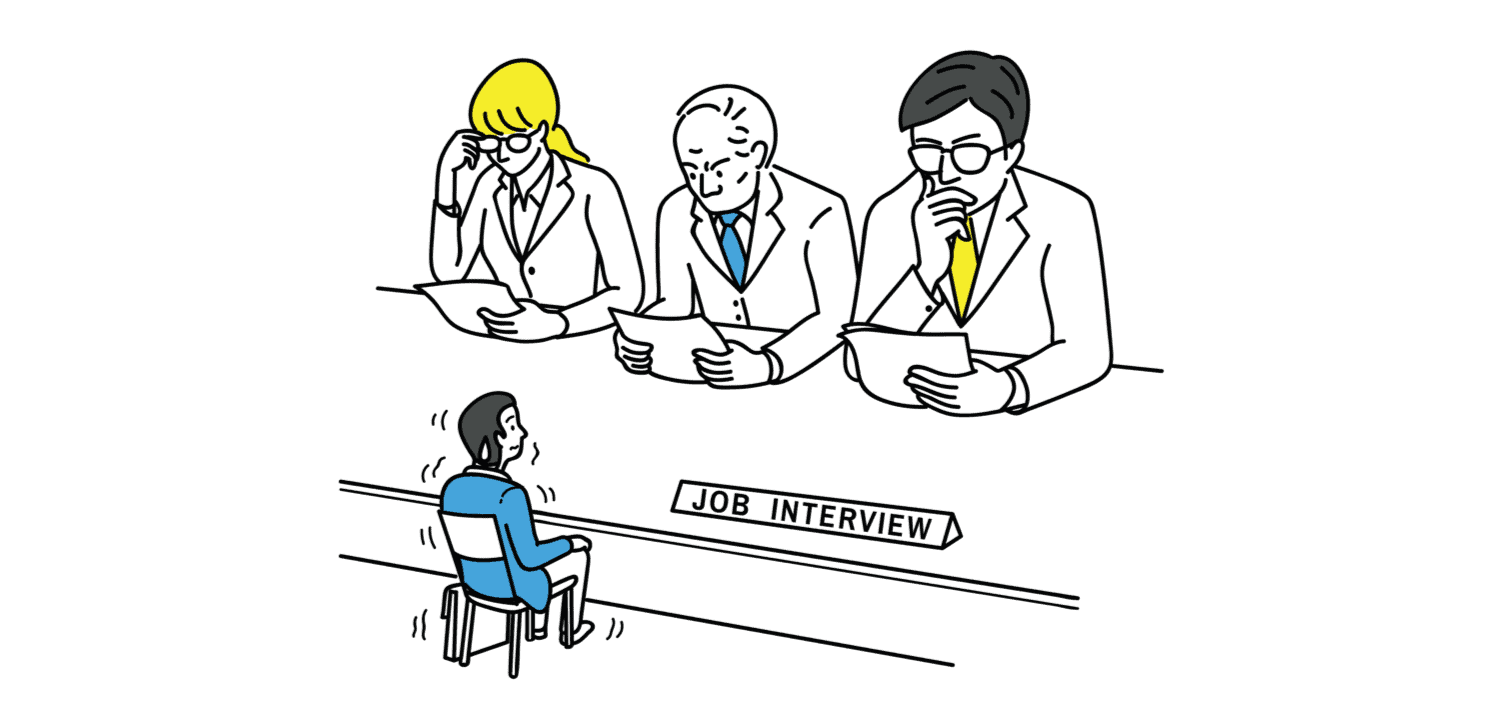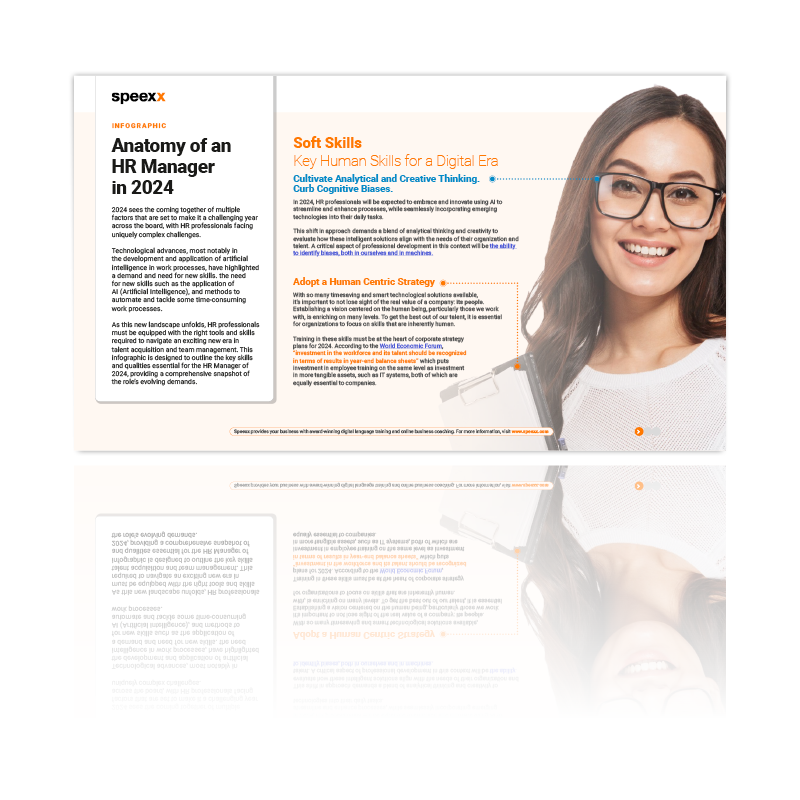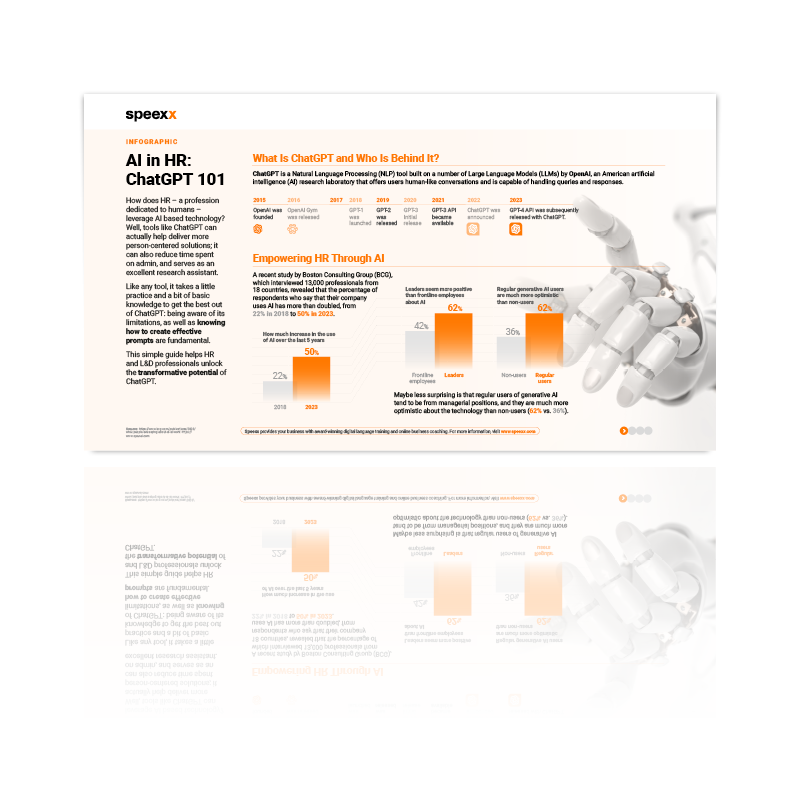Attending job interviews can be a stressful experience, especially when you’re asked to conduct it in English. The fear of not understanding the questions, struggling to express yourself correctly, or not meeting the required proficiency level can be major obstacles for many candidates. However, with proper preparation and the right mindset, you can overcome these challenges and achieve success. Before we explore the most frequently asked questions in English job interviews, here are some practical tips on how to prepare for and handle them.

Practice English Conversations
Along with preparing responses to common interview questions, practicing fluent and natural English speaking is crucial. Engage in conversations with native speakers, either online or in person, or consider enrolling in English conversation courses specifically designed for job interviews in English.
Be Confident and Enthusiastic
A positive and confident attitude is essential for making a strong impression in an English job interview. Demonstrating enthusiasm for the opportunity and your candidacy will show the employer your motivation and interest in the company.
Don’t Be Afraid to Make Mistakes
Everyone makes mistakes when speaking a foreign language. When in a job interview in English, the important thing is not to panic and keep speaking. A mistake doesn’t have to hurt your chances of getting the job, especially if you can easily recognize and correct it.
Ask Relevant Questions
At the end of the interview, when asked if you have any questions, having some prepared about the job, the company, and the team’s future show your interest and initiative.
Question 1: Why did you apply for this job?
Before a job interview in English it is important to prepare yourself for the most likely questions and have some good phrases to respond with. Inevitably they will ask you why you applied for this position, here a some good ways to field that question:
- I am eager to take on more responsibility.
- This role aligns perfectly with what I am seeking.
- I believe I can bring substantial value to the company with my knowledge, skills, and experience.
Question 2: Tell us about yourself…
A job interview in English is like any other job interview; you already know what you want to say in your own language, just be ready to express this in English. Here are a few ways you can speak positively about yourself in English:
- I’m a results-driven [your profession] with [number] years of experience in the [your sector] industry.
- Throughout my career, I’ve consistently achieved [your merits] and have developed strong skills in [your competencies].
- I’m excited about the possibility of bringing my expertise in [your skills] to the role of [job title] here at [company name], where I feel I can contribute significantly to your team’s goals and success.

What are the essential skills of the modern day HR Manager?
Question 3: Why did you leave your last job?
In an interview, you only have a small window of time in which to give the very best impression of yourself. Doing a job interview in English can be stressful if you aren’t used to speaking the language very often. The most effective way to overcome this is, of course, to take a course that enables you to hone your skills and practice English regularly. At Speexx we help people improve their English skills within a professional context, using tailored, on-demand classes that align with your role and industry. Business coaching can also be harnessed to help improve your interviewing techniques. Here are some useful phrases to use when the interviewer asks you why you left your last position:
- I took some time to rethink my career goals and decided I needed a change.
- After quite a few years with my last company, I was keen to explore a new setting and keep growing professionally.
- I felt the time was right to move on and explore new challenges to progress my career.
- I started to feel like the work wasn’t as fulfilling anymore, and I wasn’t enjoying it like I used to.
- I felt like I’d gone as far as I could in that role; I needed a fresh environment and a new challenge.
Question 4: Tell me about your education…
- I studied [course] at the University of…
- I’ve just graduated in [course] from the University of….
Question 5: What do you know about our organization?
- Your company has proven to be…
- The company is famous for…
TIP: Where appropriate, express what facts you know and/or how you feel about the company, and don’t be afraid to flatter them!
Some useful words and phrases:
Market leader, pioneer, trailblazer, well-established, known for…
TIP: If the company interviewing you is a competitor of your current or previous employer, mention why you feel that they are a better match for you at this point in your career:
- [Interviewing company name] is a more exciting prospect for me because [give reasons such as it is bigger/newer, it reflects my ambitions…]

Question 6: Why should we hire you?
- You should hire me because I bring the exact skills and experience you need.
- I’m highly [your competencies] and have demonstrated my ability to [your skills] effectively.
- Additionally, I am [your strengths], both a team player and a quick learner.
- I’m confident that I can make a significant contribution to your company.
TIP: It is worth mentioning why or how you are particularly well aligned with the company.
Question 7: What are your strengths?
- I’ve always been a great team player.
- I believe my strongest trait is my attention to detail.
- I’m adept at multitasking/problem solving.
- I pay close attention to my customers’ needs.
- I am a natural communicator.
- I have good time management skills and always meet deadlines.
Question 8: What are your weaknesses?
Of course, admitting weakness is never something we want to do in a job interview in English – or in any language, for that matter! However, it is a stock question they will likely ask you, so it is wise to have some readymade answers to admit that you are not perfect, but that your “weaknesses” are in fact strengths in disguise:
- I tend to try to solve problems independently instead of asking a colleague who might have a better understanding or an angle I’ve not thought of.
- Sometimes I have trouble delegating duties to others.
- I can get a bit stressed when…
.

Learn the basics of effective AI prompting.
Question 9: What are your career goals?
- My career goal is to [your long-term career goal].
- I see this position as a fantastic opportunity to take the next step in my career.
- It aligns perfectly with my aim to hone my skills to reach my goals.
- I’m super excited about [specific objectives for the position] within this company.
- I’m confident that my skills and experience equip me well to succeed in this role and make a meaningful impact here.
Question 10: What are your salary expectations?
- My salary expectations are in the range of [specify the salary range you expect], which reflects my skills and experience, as well as the going rate for similar roles in this area.
- I also feel that this is a good investment in terms of the value I can bring to your company.

Question 11: Do you have any questions for us?
- How soon do you expect to decide?
- Do you have a training and professional development programs?
Job Interview in English: Useful Adjectives
It’s good to have a few adjectives in mind that you can use to talk about yourself in a positive way. Here are some suggestions:
Motivated, patient, hard-working, optimistic, ambitious, cooperative, focused, reliable, organized, determined, committed, proactive, flexible, creative, down-to-earth, responsible, approachable, enthusiastic.
And Finally…Don’t Panic!
Doing a job interview in English can be challenging, but being well prepared, knowing what you want to say, and how to say it, will help you to navigate the conversation successfully. The interviewer knows you might feel stressed and, if they are good at their job, they will help you to feel more comfortable. So, remember, if you do not understand a question, its not the end of the world! Simply ask them to repeat or rephrase the question. Here are some useful ways to express that:
- I am sorry, could you kindly repeat the question for me, please?
- Sorry, I didn’t quite catch that, could you repeat the question for me, please?
- I am sorry, I don’t quite get the question, would you be so kind as to rephrase it?
And if you’re unsure of how to express something in English, just say so!
- I’m not sure what the exact expression is in English, but what I mean is [say what you mean using the language available to you]…
Good luck and don’t panic!